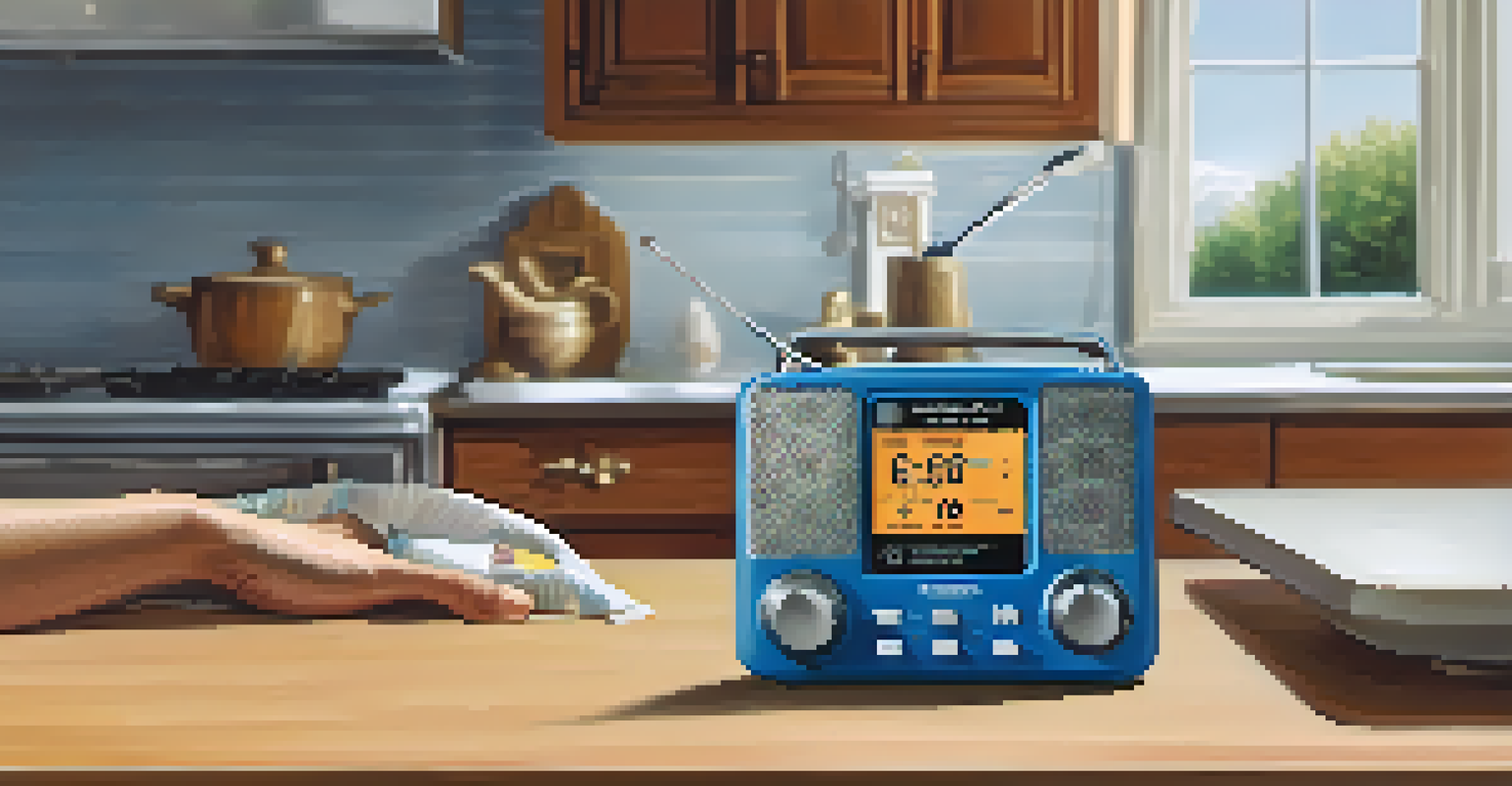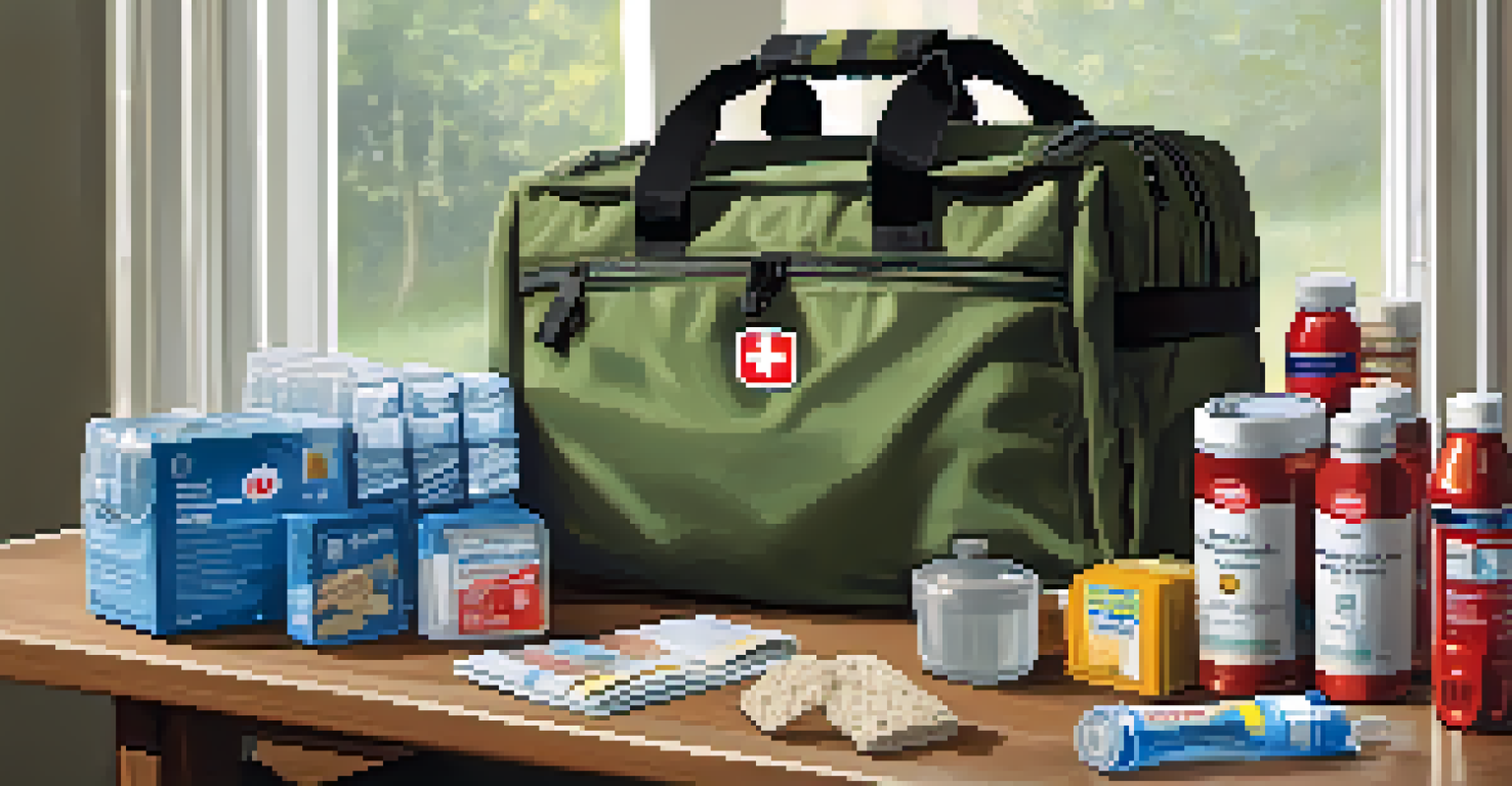Phoenix Weather Alerts: Understanding Risky Climate Conditions

Understanding Weather Alerts in Phoenix
Weather alerts are crucial for residents of Phoenix, especially given the region's unique climate. These alerts notify us about potential hazards, ranging from dust storms to extreme heat. Staying informed helps us prepare and respond effectively to these conditions.
It's not the heat, it's the humidity.
The National Weather Service (NWS) issues different types of alerts, including watches, warnings, and advisories. A 'watch' means conditions are favorable for severe weather, while a 'warning' indicates immediate danger. Understanding these terms is essential for taking appropriate action.
In Phoenix, being proactive about weather alerts can save lives. For instance, knowing when a dust storm is approaching can help you find shelter and avoid driving in poor visibility. Awareness is the first step toward safety.
Common Weather Hazards in Phoenix
Phoenix is no stranger to extreme weather conditions, which can pose significant risks. The most common hazards include heat waves, monsoon storms, and dust storms, each bringing its own set of challenges. Recognizing these risks is vital for our safety and well-being.

Heat waves can lead to heat-related illnesses, especially for vulnerable populations like the elderly. During these times, it's crucial to stay hydrated and limit outdoor activities. For example, if temperatures soar above 110°F, consider staying indoors during peak hours.
Stay Informed About Weather Alerts
Understanding weather alerts like watches and warnings is essential for making informed decisions during hazardous conditions.
Monsoon storms, while refreshing, can also lead to flash floods and strong winds. The sudden downpours can cause rapid water accumulation, making certain areas dangerous. Always check local forecasts when the monsoon season hits, as conditions can change quickly.
The Importance of Staying Informed
Staying informed about weather conditions is essential for safety in Phoenix. Following local news stations, weather apps, or social media channels can provide real-time updates. This information helps you make informed decisions about your day-to-day activities.
By failing to prepare, you are preparing to fail.
Many residents often overlook the importance of having a weather radio. This device can keep you updated even during power outages, ensuring you receive alerts without interruption. Having multiple sources of information is always a smart strategy for any situation.
Additionally, consider signing up for local emergency notifications. Many cities offer text or email alerts about severe weather conditions. This simple step can keep you one step ahead and help you prepare for potentially dangerous situations.
Preparing for Extreme Heat in Phoenix
Preparation for extreme heat conditions is essential for anyone living in Phoenix. During heat waves, it's crucial to have a plan in place to stay cool and hydrated. Start by identifying places in your home that remain cooler and consider investing in fans or air conditioning if you haven't already.
It's also a good idea to stock up on water and non-perishable snacks. Keeping these essentials handy can make a significant difference during extreme heat days when venturing outdoors is not advisable. Remember, hydration is key!
Prepare for Extreme Weather Hazards
Being proactive in preparing for common hazards such as heat waves and monsoon storms can significantly enhance safety and well-being.
Lastly, check on friends and family who may be more vulnerable to heat-related issues. A quick phone call can ensure they have the resources they need to stay safe. We’re all in this together, and a little community support goes a long way.
Safeguarding Against Monsoon Storms
Monsoon storms can arrive with little warning, making preparedness vital. Always keep an emergency kit ready that includes essentials like flashlights, batteries, and first-aid supplies. Being prepared can make a stressful situation more manageable.
When storms are forecasted, it's wise to secure outdoor furniture and belongings that might blow away in high winds. It's also a good time to ensure gutters and drainage systems are clear to prevent flooding. Taking these small steps can save you from potential damage.
If you're caught in a storm, avoid driving in heavy rain or flash floods. Even a few inches of water can be dangerous. Wait for conditions to improve and always heed local advisories about road safety.
Navigating Dust Storms Safely
Dust storms are a common occurrence in Phoenix, and they can be quite hazardous. These storms can reduce visibility to near-zero levels, making driving extremely dangerous. It's essential to know how to react when a dust storm warning is issued.
If you find yourself on the road during a dust storm, the best course of action is to pull over and wait it out. Turn off your lights and keep your foot off the brake to avoid confusing other drivers. Staying calm and patient is key in these situations.
Utilize Community Resources Effectively
Leveraging local resources, workshops, and community networks can provide valuable information and support in times of severe weather.
After the storm passes, be cautious of potential debris and hazardous road conditions. Always check local news for updates before heading out, as it can take time for cleanup crews to clear the roads. Your safety should always come first.
Community Resources for Weather Alerts
Phoenix offers various community resources to help residents stay informed about weather alerts. Local government websites often provide up-to-date information on weather conditions and emergency response plans. Familiarizing yourself with these resources can enhance your preparedness.
Community centers and libraries may also host workshops on emergency preparedness and weather safety. Participating in these programs can empower you with the knowledge you need to protect yourself and your loved ones. Don’t hesitate to reach out and learn more.

Additionally, consider connecting with local neighborhood groups online. These platforms can serve as valuable spaces for sharing information and experiences related to weather conditions. A strong community network can be a vital resource when facing challenging climate situations.